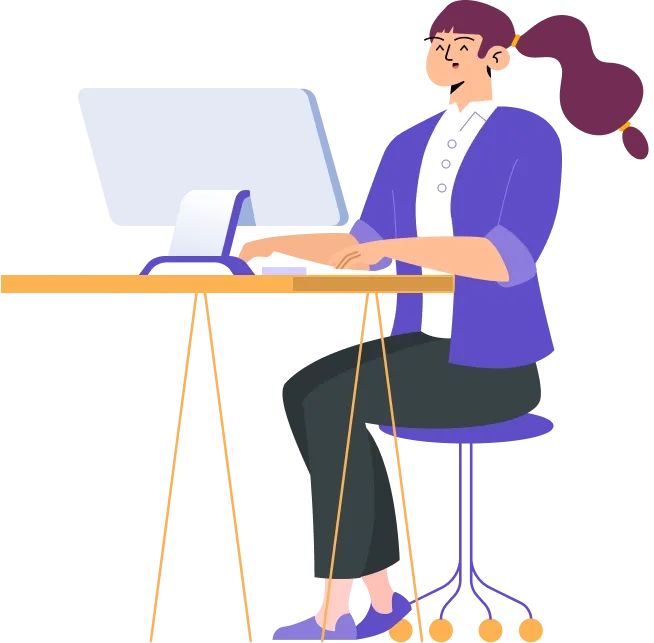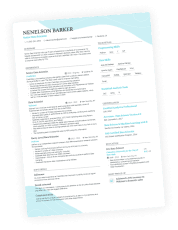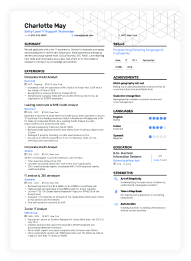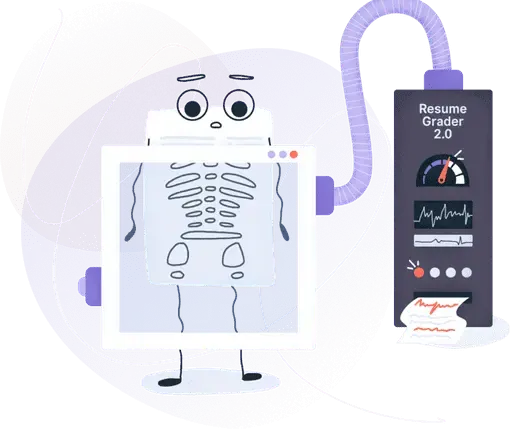Adaptability and Flexibility Skills: Highlighting How You Adjust to Change on Your Resume (in 2024 and Beyond)
Here are the top ways to show your flexibility skills on your resume. Find out relevant flexibility keywords and phrases and build your resume today.


Is your resume ATS-friendly?
Drop your resume here or upload a file to find out if the skills in your resume are readable by an ATS.
What are “adaptability” and “flexibility”
Have you seen the following requirement (or its likes) within your recent job search: "adapting to change and leading change"?
And you started going over and over your resume. Overthinking and overanalyzing if your experience shows how you deal with change…
Benjamin Franklin once said that: “Change is the only constant in life. One's ability to adapt to those changes will determine your success in life.”
With that being said, we will guide you on how to best showcase your "adaptability" and "flexibility" skills in your resume.
Both soft skills are very similar and are often used as synonyms in job ads.
"Adaptability" are qualities that help you adjust to change in situations facing new (and, or unexpected) factors, conditions, environments, circumstances, or obstacles.
"Flexibility" is also the ability to suit your behavior and actions to change. But additionally, it defines the willpower to adapt your mindset to the new and unknown.
This phrase may be a bit worn-out, but it still reflects our reality. Over the past two years, we have been adapting every single day to the "new normal" - from our way of life to our way of work.
And the key outcome from this constant adapting is how we have developed our cognitive and learning abilities, which are essential also to the workplace.
Without revealing too much, too soon, let's look at some more reasons why it's good to mention your adaptability and flexibility skills.
Why are “adaptability” and “flexibility” wanted by recruiters on your resume
Adaptability and flexibility skills aren't just something you need to “check off your list” and be done with. They indicate to recruiters that you’ll be successful within the role.
From the very start of a new position, you should be able to easily get used to the new systems, environment, and colleagues.
Of course, this responsibility falls on both parties, but your flexibility skills could make settling into your new job seamless.
The adaptable skill set shows recruiters a professional that's reliable and diverse; a great team player and collaborator.
If you’re adaptable, it means you can handle uncharted waters and aren't afraid to face the unfamiliar. And, you are always able to deliver - no matter the circumstances.
Looking ahead, adaptable employees are the early adopters of new ideas.
To survive within the modern economy, businesses need to implement new technologies.
Employees that showcase adaptability easily integrate them within their work environment.
Shaping further company culture and taking on the first wave of innovation.
Their career exemplifies a yearning for growth and progress.
Put it simply - from the first moment these employees enter the office, they are ready to take on any challenge to achieve their goals.
And if you are still wondering which of your skills are great examples of flexibility, look no further.
What skills, activities and accomplishments help you highlight your “adaptability” and “flexibility”
We have prepared the 3 most popular qualities that could define you as an adaptable and flexible professional.
Of course, you shouldn’t be limited to just these 3, but use them as a framework for your experience:
- Consciousness and open-mindedness - both skills are more linked to demonstrating a particular mindset. They portray an individual that is well-aware and understands their surroundings. And when a certain problem arises, they can impartially look for new solutions from different sources.
- Creative and strategic thinking - how do you feel about experimenting and improvising? Creative and strategic thinkers can provide a new perspective on a given issue. But they also think ahead - on the impact their actions would have on the end goal, byline, or big picture.
- Conflict-resolving skills - being able to lead an educated discussion or debate with your colleagues shows adaptability. Remember to showcase impartiality - that you respect others' opinions in the face of conflict. Focus on what can be done rather than the unnecessary drama.
How to demonstrate “adaptability” and “flexibility” on your resume:
- Describe how you have handled unplanned changes within your work environment - whether it's communicating unprecedented problems to clients or being the first to explore a new tool;
- Within your day-to-day work, another good example would be how you adapted your workflow to prioritize unplanned events;
- Think of situations where you have led meetings with your team (and or clients) to get everyone's feedback, opinions, and ideas in an impartial and positive environment;
- Cases where you have offered outside the box thinking for a certain issue - that have had a positive, measurable impact;
- Even your attitude towards failure could be good to describe - where you made a mistake, but got back up and offered new solutions.
Demonstrating your adaptability and flexibility skills, as you far have seen, is about showing the way you think.
They help you thrive in a dynamic, fast-paced environment. And guide you to see change as an opportunity, rather than a threat to your job.
If you solely rely on a good thesaurus when writing your resume rather than showing what you can do, we can guarantee that you'll get nowhere really fast.
Because we can't all be "dynamic, adaptable, flexible, adjustable individuals".
At one point, this sandcastle you are building will wash away.
That's why you need to build it with more durable "materials" - in this case, proof and examples.
To further enhance your adaptability and flexibility skills on your resume, we have prepared a couple of snippets for you.
They describe how you can adequately show this particular skill set (or should we say mindset) as part of your career.
Example 1: Demonstrate “adaptability” and “flexibility” in the experience section
Job situation: Project Manager, applying for the role of Senior Project Manager
- •Budgeted, coordinated, and developed further confidential projects with a focus on scope, cost, and key deliverables.
- •Risk assessment: coordinated response actions with other departments to identify and manage possible risks.
- •Prioritized and strategized for necessary change requirements, further communicated to clients and key stakeholders.
- •Discovered ways for further automation and coordinated their implementation.
The project manager's resume shows that their role included both constant (day-to-day activities) and on-growing responsibilities. The impact they created was measurable by their key focus.
Think about similar risk assessment or system update requirements you have had to implement. They reveal your experience within an unprecedented environment. Excellent examples would be of situations where you have had to communicate the necessary precautions or changes across to other departments and/ or clients.
Any early adopter situations (of software or processes) showcase a flexible mindset.
Example 2: Demonstrate “adaptability” and “flexibility” in the resume summary section
Job situation: Crisis Communication Expert with 3 years of experience leading PR campaigns
Any situation where you have had to announce "unusual" or "unparalleled" (to put it lightly) events require flexibility.
In the case of this crisis communications expert, they always made the best out of any given situation and played clients' strong card in front of the media. No matter the circumstances and events - they knew how to plan ahead and create that positive impact.
Example 3: Show your “adaptability” and “flexibility” in your achievements sections
Job situation: Primary School Teacher applying for the role of Principal
The “Key Achievements” for each role could allow you to further emphasize your flexibility skills through your resume.
Notice the pattern within this primary school teacher’s role? They constantly evolved their responsibilities to better suit the students’ interests and, at the same time, to create a better learning experience for everyone.
Example 4: Demonstrate “adaptability” and “flexibility” through other sections of your resume
During your studies, did you ever get the opportunity to spend a year abroad (as part of an Erasmus or such program)? If you have, you can add this to your education section and further talk about your experience.
Mentioning briefly any of the following:
- How you handled language barriers and communication challenges;
- Getting accustomed to your new environment;
- Meeting new people and making friends - impact they have had on your beliefs and mindset.
This would further go to show that you can adapt to any given scenario, both personally and professionally.
“Adaptability” and “Flexibility”: Key Takeaways for Your Resume
- It’s best to portray your adaptability and flexibility skill set via your experiences, which highlight scenarios where you have had to deal with change;
- Showcasing these skills could be an indicator not only of your professionalism, but of your character, ability to thrive and grow within any environment;
- Being the first to experience new things at the workplace - whether its processes, systems or tools - could be another nice hint for your constantly developing soft skill set.
About this report:
Data reflects analysis made on over 1M resume profiles and examples over the last 2 years from Enhancv.com.
While those skills are most commonly met on resumes, you should only use them as inspiration and customize your resume for the given job.
Make one that's truly you.




